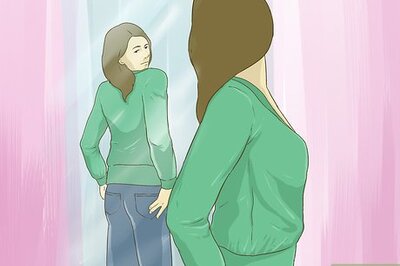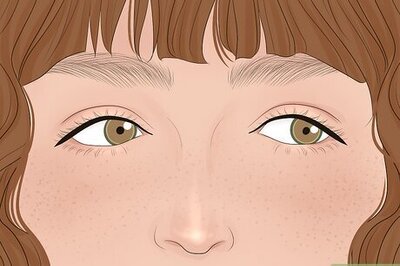
views
KOCHI: With the monsoon comes potholes, traffic jams and overflowing ditches, not to mention a hoard of diseases. The muck, stagnant water and dampness during the season are excellent breeding grounds for disease-causing microbes. According to the District Medical Office, more than 200 cases of monsoon-related illnesses have already been registered in Kochi this month. Here is a list of the most common among them.Food and water-borne diseases: They say, 'food is the best way to a man's heart' and nobody seems to understand it more than microbes! Use of unhygienic food and water can lead to sicknesses such as cholera, dysentery, diarrhoea, typhoid, and a variety of others which can leave you fatigued and bed-ridden for at least a couple of weeks.Symptoms: Fatigue, nausea, fever, loose stools and abdominal discomfort are the general symptoms of food and water-borne diseases. Precautions: "The best and most effective way to avoid diseases is to avoid eating from roadside stalls or hotels and to drink water after boiling it for 20 minutes," says Dr Sudhakaran, District Medical Officer, Kochi. "It might sound difficult but once you start practising it, it becomes a lot easy. Also, food should not be left open for long. For those who already show a few of the above-mentioned symptoms or if the fever persists for more than two days, consulting a doctor would be wise.Air-borne diseases: The most common air-borne disease is, you guessed it, the common cold. Apart from being highly irritating, this illness has the amazing capacity to spread in a matter of minutes. Other air-borne diseases that are widespread during monsoon include the influenza, H1N1 and pneumonia. Symptoms: While the symptoms of each disease vary, there are some common pointers such as cough, nasal congestion, body ache and raised body temperature. Precautions: "Those who have already contracted such sicknesses should remain indoors to avoid the risk of spreading the disease to others," said Dr Sachidananda Kammath, president, Indian Medical Association, Kochi. "For others, it is better to avoid contact with affected individuals. The best thing to do, though, is to maintain a healthy immune system," he said. If you can't avoid going out try not to spread it. Close your mouth and nose with a handkerchief while sneezing or coughing. Insect-borne diseases: These are the illnesses s spread through organisms such as mosquitoes and houseflies. They include sicknesses like malaria, dengue fever and chikungunya . Symptoms: The most common symptoms of all mosquito-borne diseases are high fever which persists for more than two days, nausea, fatigue and body ache. The diseases that are transmitted through houseflies are mostly related to the digestive system and show the same symptoms as food-borne diseases.Precautions: The most important thing to do is to prevent the breeding of mosquitoes. "In houses where water is stored in drums, care should be taken to cover them with a suitable lid so that it does not serve as a mosquito breeding ground. Even discarded egg shells and coconut shells which collect rain water are enough for mosquitoes to breed. Hence, proper disposal of waste is also important. In water bodies where there is no movement of water, like wells and ponds, larvivorous fish like Gambusia and Poecilia should be introduced. People also need to avoid water accumulation in their sunshades or terraces by cleaning them once every week," said Dr Sudhakaran.Keep food in closed containers as to avoid infestation by flies. Using insect repelling products is also advised. Animal-borne diseases: The most common and dangerous animal-borne sickness associated with monsoon is leptospirosis. The bacteria enters the body through any sore or open wounds. Symptoms: The common symptoms of leptospirosis are high fever, severe headache, chills, muscle aches, and vomiting, and may include jaundice, red eyes, abdominal pain, diarrhoea, and rashes. Precautions: The first rule is 'avoid puddle jumping!' It might be fun, but why take the risk of contracting a deadly disease. Another important precaution is to dispose of garbage properly to avoid breeding of rats. For high risk groups such as sanitary workers and butchers, taking 'doxycycline' twice a week will be useful in prevention. But the first and foremost rule in avoiding diseases is the age-old tradition called 'personal hygiene'. Keep yourself and your surroundings clean. Always wash your hands using soap before taking food and after using the rest room. Stick to these simple rules and the monsoon is yours to enjoy.




















Comments
0 comment